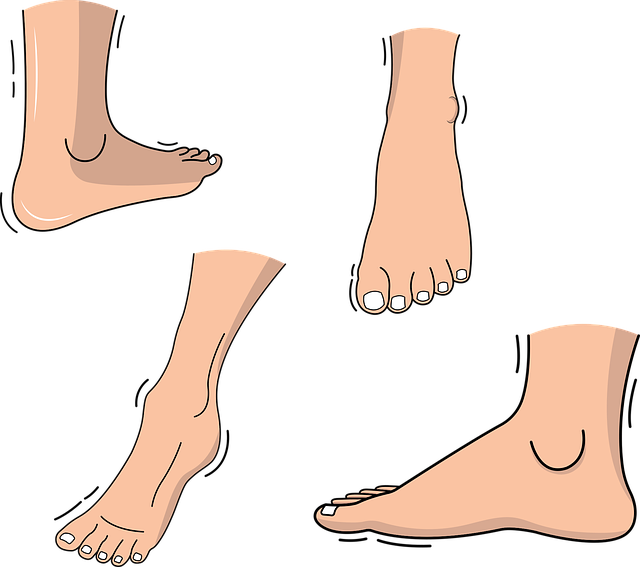Motorcycle Accident Insurance Claims: A Comprehensive Guide to Coverage

Navigating a motorcycle accident insurance claim requires swift action and meticulous documentation……..
In an increasingly mobile world, motorcycles offer a liberating and efficient mode of transportation. However, they also come with inherent risks, making motorcycle accidents a significant concern. This article delves into the intricate world of motorcycle accident insurance claims, exploring how riders can safeguard themselves financially and legally in the event of a collision. We will unravel the various aspects, from understanding the claim process to analyzing global trends and technological innovations that shape this critical aspect of motorcycling. By the end, readers will grasp the importance of being informed about motorcycle accident insurance claims and their rights.
Definition: A motorcycle accident insurance claim refers to the legal process by which a motorcyclist or their representatives seek financial compensation from an insurance provider following a motorcycle-related collision. This claim is made when the rider sustains injuries, experiences property damage, or faces legal liabilities due to an accident.
Core Components:
Accident Reporting: The initial step involves documenting the incident by reporting it to law enforcement and providing relevant details like date, time, location, and circumstances. This report serves as a critical document for insurance claims.
Medical Attention and Documentation: Motorcyclists involved in accidents must prioritize their health. Seeking immediate medical care ensures proper documentation of injuries, which is crucial for claim validation. Medical records become essential evidence during the claim process.
Notice to Insurance Provider: Promptly notifying your insurance company about the accident is vital. This notice should include all relevant details and provide a timeframe for submitting supporting documents.
Claim Filing: The motorcyclist or their representative submits a formal claim, including proof of identity, policy coverage details, and documentation of losses (e.g., medical bills, property damage estimates).
Assessment and Negotiation: Insurance adjusters assess the claim, verifying its validity and calculating compensation. This phase can involve negotiations to reach an agreement on the claim amount.
Historical Context: Motorcycle insurance claims have evolved alongside advancements in motorcycling technology and changing legal landscapes. Historically, motorcycle accidents were often underreported due to concerns about increased premiums. However, rising awareness of rider safety and stricter laws have led to a more robust claims system. Today, many countries mandate motorcycle liability insurance, ensuring riders are financially accountable for their actions on the road.
The global motorcycle accident insurance claim market is shaped by diverse factors, reflecting varying cultural, legal, and economic environments. Here’s an overview:
| Region | Key Trends | Influence |
|---|---|---|
| North America | Strict liability laws, advanced safety features in motorcycles | Encourages comprehensive insurance coverage, drives innovation in protective gear |
| Europe | Comprehensive motorcycling culture, high density of motorcycle-friendly infrastructure | Strong demand for accident insurance, favorable attitudes towards rider safety |
| Asia Pacific | Rapid urbanization, growing motorcycle ownership | Increasing claims volume, challenges in handling cross-border claims |
| Middle East & Africa | Growing tourism and business travel on motorcycles | Rising claim awareness, potential for standardized regional policies |
The motorcycle accident insurance market is a significant component of the broader insurance sector. Here’s an economic perspective:
Market Size: According to industry reports, the global motorcycle insurance market was valued at USD 147.5 billion in 2020 and is projected to grow at a CAGR of 6.2% from 2021 to 2028. This growth is attributed to rising motorcycle sales and increasing awareness of rider safety.
Investment Patterns: Insurance companies invest in risk assessment technologies, data analytics, and digital platforms to streamline claims processing. These investments enhance efficiency and enable more accurate pricing of policies.
Economic Impact: Motorcycle accident insurance plays a crucial role in economic systems by:
Technology has significantly transformed motorcycle accident insurance claims:
Telematics Devices: These devices, installed in motorcycles, track driving behavior, providing real-time data on speed, acceleration, and braking patterns. This data aids insurers in risk assessment and can offer policy discounts for safe riding.
Advanced Data Analytics: Insurers leverage big data analytics to predict accident patterns, identify high-risk areas, and personalize policies based on individual driver profiles.
Digital Claims Reporting: Mobile apps and online platforms enable users to report accidents instantly, upload documents, and track claim status, enhancing efficiency and user experience.
AI-Powered Assessment: Artificial intelligence (AI) algorithms can analyze accident data, medical records, and witness statements to assess liability and calculate compensation more accurately.
Government policies and regulations play a pivotal role in motorcycle accident insurance claims across the globe:
Liability Laws: Many countries have strict liability laws mandating minimum insurance coverage for motorcycles, ensuring riders are financially responsible for accidents they cause.
Safety Standards: Regulatory bodies set safety standards for motorcycle equipment, including protective gear and vehicle design, which influence insurance requirements.
No-Fault Insurance: Some jurisdictions adopt no-fault insurance systems, where both parties involved in an accident share liability and claims are processed regardless of fault. This system simplifies the claim process but may vary in its application.
Regional Cooperation: In a globalized world, cross-border motorcycle tourism is common, leading to regional collaborations on standardizing insurance policies and claims procedures.
Despite significant progress, motorcycle accident insurance claims face challenges and criticisms:
Underreporting and Fraud: Accurate claim reporting remains a challenge due to underreporting and instances of fraud, impacting the overall cost of insurance.
Complex Liability Determinations: In multi-vehicle accidents or when fault is unclear, determining liability can be complex, leading to prolonged claims processing.
High Costs for Riders: In some regions, comprehensive motorcycle insurance is expensive, especially for high-risk riders, making it inaccessible for some.
Proposed Solutions:
Scenario: Sarah, a seasoned motorcyclist, was involved in a minor accident while touring Europe. Her quick response and awareness of the claim process ensured minimal delays.
Steps Taken:
Outcome: Sarah’s proactive approach ensured a smooth claims process, demonstrating the importance of immediate action and thorough documentation.
Challenge: David, an American motorcyclist, was on a road trip in Italy when he was hit by a car while crossing a busy intersection. The complex legal system and language barrier posed significant challenges for filing a claim.
Solution: David engaged an international insurance brokerage firm specializing in cross-border claims. They:
Impact: This case highlights the value of specialized support in managing complex international claims, especially in diverse legal environments.
The motorcycle accident insurance claims sector is poised for growth and innovation:
Telematics Revolution: As telematics technology advances, insurers can offer more personalized policies based on individual riding behavior, potentially reducing costs for safe riders.
AI and Automation: AI will play a larger role in claim assessment and fraud detection, streamlining processes and improving accuracy. Automated chatbots may also assist customers with initial claim inquiries.
Digital Underwriting: Digital platforms will enable faster and more accurate policy underwriting, providing instant quotes to riders.
Regional Integration: Increased regional cooperation in insurance regulations could lead to seamless claims processing for cross-border motorcyclists.
Motorcycle accident insurance claims are a critical aspect of motorcycling, ensuring riders’ financial security and promoting safe riding practices. This article has explored various facets, from understanding the claim process to analyzing global trends and technological innovations. As the motorcycling community continues to grow worldwide, so does the need for robust and adaptable insurance systems.
By embracing technology, adhering to policies, and learning from case studies, riders can navigate the complexities of motorcycle accident insurance claims with confidence. The future holds promising advancements, ensuring that riders are better equipped to manage risks and enjoy their rides with peace of mind.
Q: How do I know if my motorcycle is covered for accidents?
A: Check your policy documents or contact your insurance provider. Comprehensive policies typically cover accidents, but specific terms and exclusions vary.
Q: What should I do immediately after a minor accident?
A: Ensure everyone’s safety first. Call emergency services if needed, exchange information with other parties, and document the incident for future reference.
Q: Can I negotiate with the insurance company directly?
A: Yes, negotiation is part of the process. Be prepared with all relevant documents and understand your rights as a policyholder.
Q: Are there any discounts available on motorcycle insurance?
A: Absolutely! Insurers offer various discounts for safe riding practices, advanced safety features, good student status, and bundle policies (combining motorcycle and car insurance).
Q: What if I’m at fault in an accident? Will my rates go up?
A: Yes, your insurance rates may increase, but the extent depends on your insurer’s policy and local regulations. Being a responsible rider and maintaining a clean record can help mitigate rate hikes.

Navigating a motorcycle accident insurance claim requires swift action and meticulous documentation……..

After a motorcycle accident, immediate medical attention is paramount. Documenting treatments, diagn…….

When dealing with a motorcycle accident insurance claim, understanding your policy is crucial. Revie…….

Understanding your motorcycle accident insurance claim process requires reviewing policy documents,…….

After a motorcycle accident, prioritize safety and seek immediate medical care. Review your insuranc…….

After a motorcycle accident, understanding your insurance policy and gathering relevant documents li…….

Motorcycle accident insurance claims are complex processes requiring policyholders to understand ter…….

After a motorcycle accident, promptly review your policy and contact your insurer if there are delay…….

Motorcycle riders should understand their insurance policy terms, including liability, medical cover…….

After a motorcycle accident, understanding your motorcycle accident insurance claim rights is crucia…….